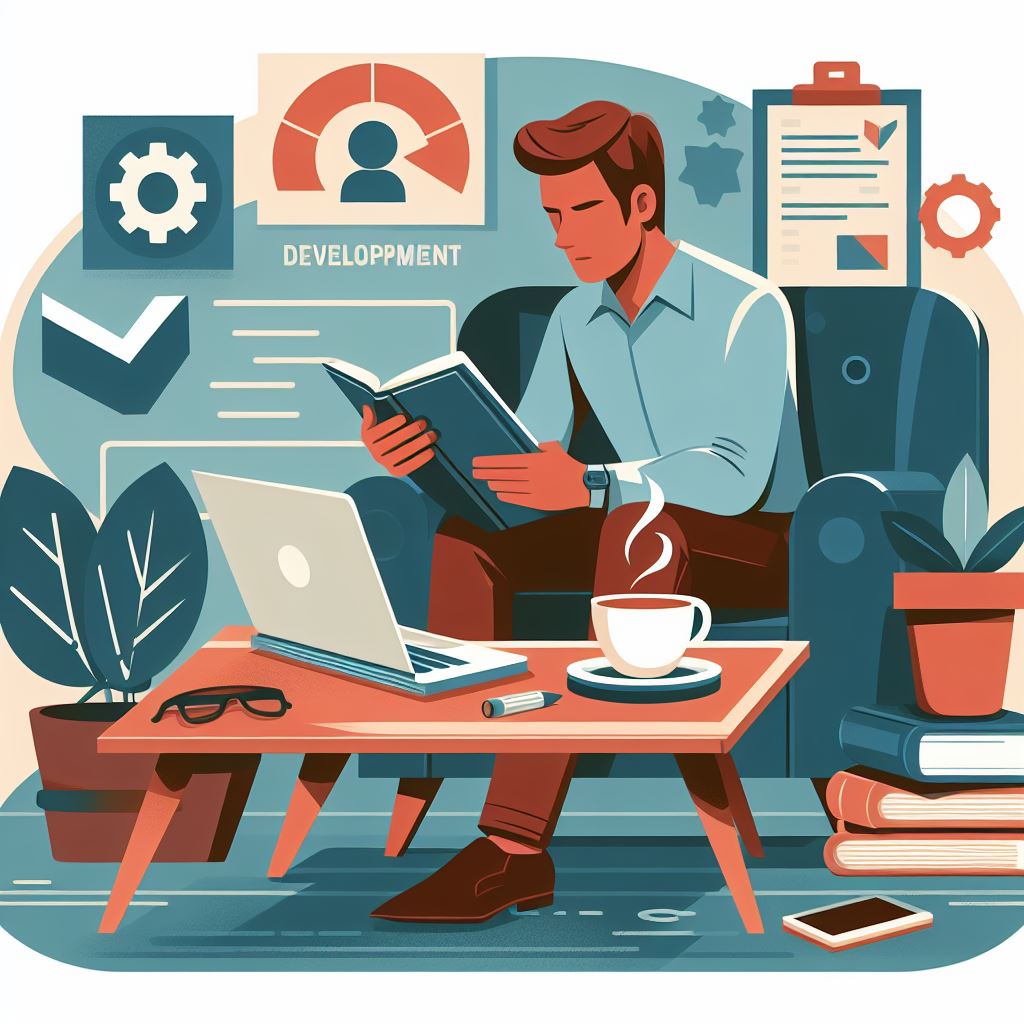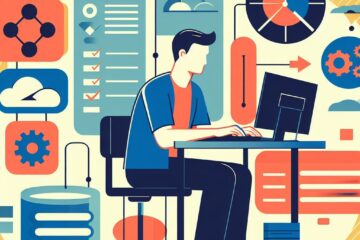Remote work has revolutionized the way we work, offering flexibility and convenience. However, this shift also comes with unique challenges, including the need for remote workers to take proactive steps to ensure personal and professional growth.
Individual Development Plans (PDPs) are valuable tools to help remote workers navigate their career paths, acquire new skills, and achieve their goals.
In this read, we will explore the significance of Personal Development Plans for remote workers and provide insights into creating effective PDPs tailored to a remote work environment.
The Importance of Personal Development for Remote Workers
Remote work offers autonomy and freedom but requires self-discipline, adaptability, and continuous learning. Personal development is essential for remote workers for several reasons:
1. Skill Enhancement: As industries evolve and technology advances, staying updated with relevant skills is crucial for career growth and job security.
2. Adaptability: Remote workers often face changing work dynamics and job requirements. Personal development helps them adapt to new challenges and opportunities.
3. Self-Management: Remote work demands practical self-management skills, including time management, goal setting, and self-motivation.
4. Career Progression: Investing in personal development increases the chances of career progression and accessing better job opportunities.
5. Well-Being: Personal development encompasses physical, mental, and emotional well-being, helping remote workers maintain a healthy work-life balance.
6. Job Satisfaction: Acquiring new skills and achieving personal goals can boost job satisfaction, leading to higher productivity and commitment.
Creating an Effective Personal Development Plan for Remote Work
Creating a Personal Development Plan tailored to a remote work environment involves setting clear goals, identifying necessary skills, and outlining actionable steps. Here’s a step-by-step guide:
1. Self-Assessment
Start by assessing your skills, strengths, weaknesses, and career aspirations. Consider your long-term career goals and what you hope to achieve in your remote work journey.
2. Define Specific Goals
Set clear and specific goals for your personal and professional development. These goals should align with your professional aspirations and be possible within a practical timeframe.
3. Identify Skill Gaps
Identify the skills and knowledge required to reach your goals. Analyze your current skills and those you need to acquire or improve.
4. Prioritize Development Areas
Prioritize the development areas that will have the most significant impact on your career. Focus on skills directly relevant to your current role or future career aspirations.
5. Create Actionable Steps
Split goals into actionable milestones. Each step should have a clear timeline and be achievable within a reasonable timeframe.
6. Set a Timeline
Establish a timeline for your Personal Development Plan. Determine when you aim to achieve each milestone or skill enhancement.
7. Allocate Resources
Identify the resources you need to accomplish your goals. This may include online courses, books, mentorship, or networking opportunities.
8. Seek Feedback
Regularly seek Feedback from colleagues, mentors, or supervisors to gauge your progress and make necessary adjustments to your plan.
9. Monitor and Reflect
Frequently monitor your progress and reflect on your achievements and challenges. Adjust your plan as needed to stay on track.
10. Celebrate Success
Celebrate your successes, no matter how small. Recognizing your achievements can boost motivation and reinforce your commitment to personal development.
11. Adapt to Change
Remote work environments can be dynamic. Be prepared to adapt your Personal Development Plan to accommodate changes in your role, industry, or goals.
Incorporating Remote-Specific Development
When creating a Personal Development Plan for remote work, consider incorporating remote-specific development areas:
1. Virtual Communication: Enhance your virtual communication skills, including proficiency in video conferencing, chat platforms, and email etiquette.
2. Time Management: Develop effective time management techniques for productivity and work-life balance in a remote setting.
3. Digital Tools: Stay updated with the latest digital tools and technologies that enhance remote work efficiency, such as project management software, collaboration tools, and cybersecurity practices.
4. Self-Discipline: Strengthen your self-discipline and self-motivation to remain focused and productive when working independently.
5. Networking: Build a professional network within your industry or field through online networking events, forums, and social media platforms.
6. Remote Leadership: If you aspire to remote leadership roles, consider leadership training and development programs tailored to remote teams.
7. Wellness and Well-Being: Prioritize physical and mental well-being by incorporating wellness practices and stress management into your plan.
The Role of Accountability
Accountability is crucial for the success of your Personal Development Plan. Here are some ways to maintain accountability in a remote work environment:
1. Share Your Plan: Share your plan with a friend, colleague, mentor, or friend who can hold you accountable and provide support.
2. Regular Check-Ins: Have regular check-ins with your accountability partner to discuss your progress, challenges, and adjustments to your plan.
3. Track Progress: Use tools or apps to track progress and milestone achievements. Visualizing your progress can boost motivation.
4. Reflect and Adjust: Reflect on your journey regularly and be open to adjusting your plan based on your evolving needs and goals.
5. Join Learning Communities: Join online learning communities, forums, or groups related to your field. Engaging with peers can provide motivation and accountability.
Resources for Personal Development
Remote workers have access to a wealth of resources for personal development:
1. Online Courses: Platforms like Coursera, Udemy, and LinkedIn Learning offer various online courses on various topics.
2. Virtual Conferences: Attend virtual conferences, webinars, and workshops relevant to your field or interests.
3. Books and Audiobooks: Read or listen to audiobooks related to personal and professional development.
4. Podcasts: Explore podcasts focusing on personal growth, career development, and industry-specific knowledge.
5. Professional Organizations: Join professional organizations in your field for access to resources, networking, and development opportunities.
6. Mentorship Programs: Seek mentorship programs or find a mentor to guide your career.
Conclusion
Personal Development Plans are valuable tools for remote workers seeking to enhance their skills, achieve career goals, and maintain a healthy work-life balance. By creating a well-structured plan, incorporating remote-specific development areas, and maintaining accountability, remote workers can navigate the challenges and opportunities of remote work while continually growing and thriving in their professional endeavors.




